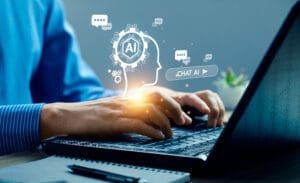Introduction
Artificial intelligence (AI) and automation are no longer futuristic concepts. They are here, transforming industries, streamlining processes, and even altering the way we live and work. From AI-powered chatbots to self-driving cars, technological advancements are reshaping our world at an unprecedented pace. But what does this mean for the average person? Is AI a force for good, or should we be wary of its rapid expansion?
In this article, we will explore the growth of AI, its impact on various sectors, the ethical concerns surrounding its use, and what the future holds.
The Growth of AI and Automation
Over the past decade, AI has evolved from simple programmed responses to sophisticated machine learning models capable of decision-making, problem-solving, and even creative thinking. The rise of large language models (LLMs) like ChatGPT has demonstrated AI’s ability to generate human-like text, answer complex questions, and assist in research and content creation.
Automation has also taken over repetitive tasks in industries like manufacturing, logistics, and customer service. Robotic process automation (RPA) allows companies to streamline operations, reduce human error, and improve efficiency. AI-powered robots now handle warehouse logistics, self-checkout machines replace cashiers, and smart assistants like Alexa and Siri help with everyday tasks.
How AI is Impacting Various Industries
AI and automation have had profound effects on different sectors. Here are a few key examples:
1. Healthcare
AI is revolutionizing healthcare by improving diagnostics, personalizing treatments, and streamlining administrative tasks. Machine learning models analyze medical images with accuracy comparable to human radiologists, while AI-driven chatbots provide preliminary diagnoses and mental health support.
2. Finance
The finance industry relies on AI for fraud detection, algorithmic trading, and customer service automation. Robo-advisors offer financial planning services, while AI models assess creditworthiness more accurately than traditional methods.
3. Retail & eCommerce
AI enhances the shopping experience through personalized recommendations, inventory management, and chatbot customer support. AI-driven analytics help businesses predict consumer behavior and optimize pricing strategies.
4. Transportation & Logistics
Autonomous vehicles, drone deliveries, and AI-powered supply chain optimization are transforming the way goods and people move. Companies like Tesla and Waymo are pushing self-driving technology, which could significantly reduce accidents caused by human error.
Ethical Concerns and Challenges
While AI brings many benefits, it also raises ethical concerns. Some of the biggest challenges include:
• Job displacement: Automation threatens traditional jobs, particularly in industries like manufacturing and customer service.
• Bias and fairness: AI models can inherit biases from their training data, leading to discriminatory outcomes.
• Privacy concerns: AI collects vast amounts of data, raising questions about security and user privacy.
• AI governance: There is a growing need for regulations to ensure AI is used responsibly and ethically.
The Future of AI and Automation
The future of AI is exciting but uncertain. Advancements in AI could lead to groundbreaking discoveries in medicine, climate change solutions, and more. However, responsible AI development and regulations will be crucial to maximizing its benefits while minimizing risks.




























